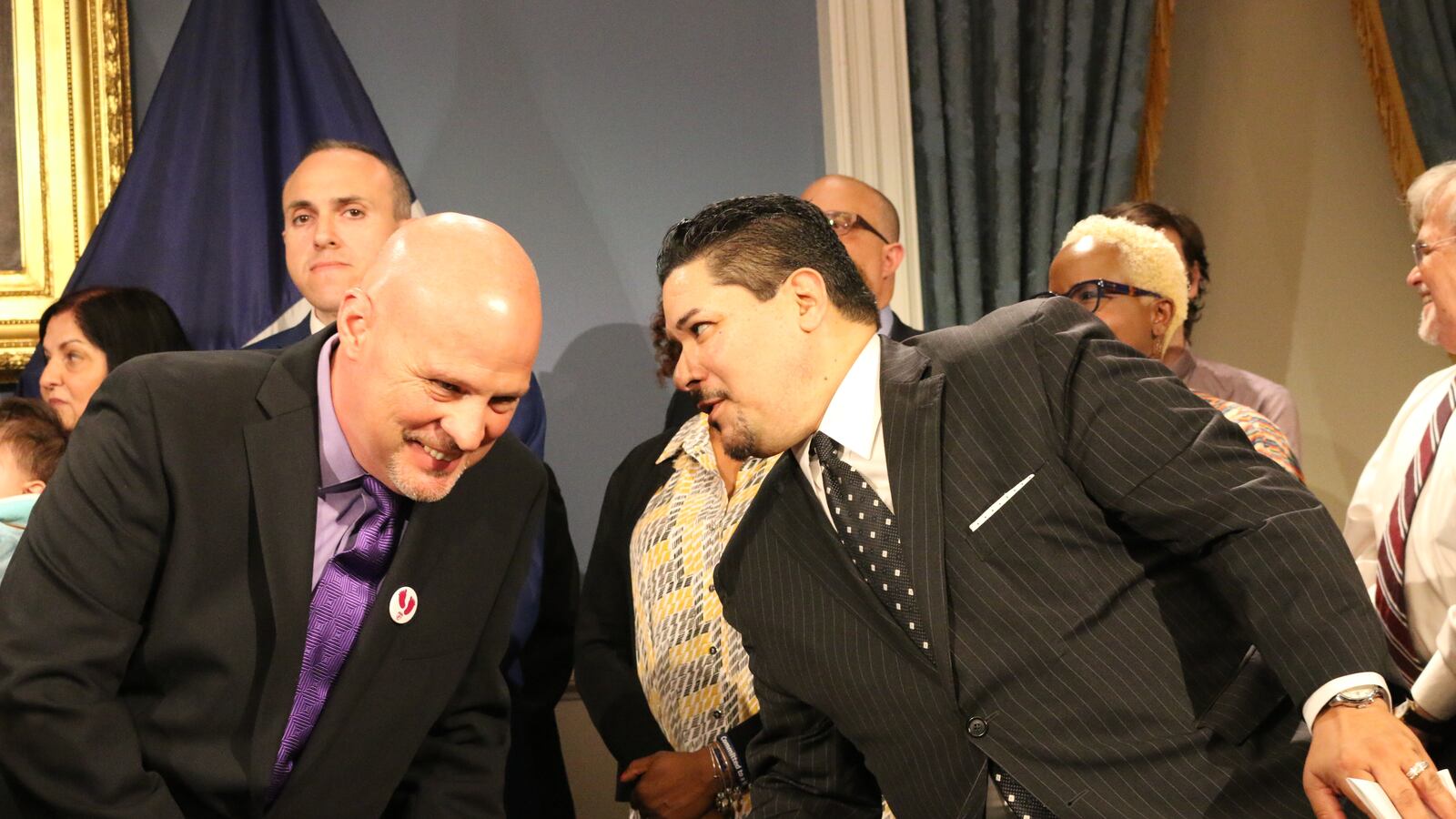New York City teachers arrived to school Monday morning with the ink dry on their new union contract. Less than a month after the city and the United Federation of Teachers announced a deal, union members voted to ratify the contract.
Under the 48-month contract, which will begin on Valentine’s Day 2019, teachers will get an immediate 2 percent raise, another salary boost of 2.5 percent in May 2020, and a 3 percent bump in the agreement’s final year. (Those raises hew to a pattern followed by all municipal unions and will come on top of payments that many teachers are still owed under the 2014 contract.)
By the new contract’s end, the starting salary of a city teacher will be $61,070, and the most experienced teachers will receive a base pay of $128,657.
When the contract deal was announced in October, some teachers offered initial criticism that the union had not won more. But the contract received a strong endorsement by union members who voted. Out of roughly 90,000 votes cast, 87 percent voted to approve the contract on Sunday, an important vote of confidence in the wake of the Supreme Court’s Janus ruling, which allows teachers covered by the contract to elect to stop paying dues if they choose.
By contrast, 77 percent of voting union members signed off on the current contract in 2014.
The new deal includes several changes in addition to pay. In a big win for the union, which has opposed the onerous process used to evaluate teachers, most teachers in the city will be subject to far fewer observations by administrators.
The contract also provides faster relief for disputes over excessive class sizes and provides raises and more due process rights for the school system’s legion of paraprofessionals. The union had already negotiated for paid parental leave, which members had long sought, in June.
“I want to thank the members of the UFT for their resounding support,” UFT President Michael Mulgrew said in a released statement. “The new agreement gives teachers a larger voice in how their schools are run, and shows what we can accomplish when we stand together.”
Not all union members endorsed the contract. The chapter that represents school nurses and therapists who provide services to children with special needs rejected the deal, and the new contract will not cover them.
The contract also supports broader initiatives, including a “Bronx plan,” which will give a salary boost to teachers who agree to work in hard-to-staff schools, and a pilot program that will allow some classes, such as advanced AP courses, to be taught remotely by other teachers in the school system.

